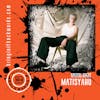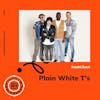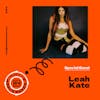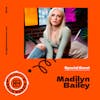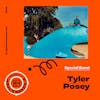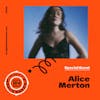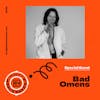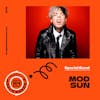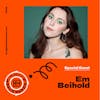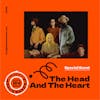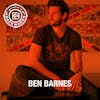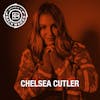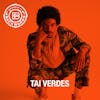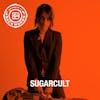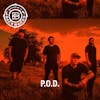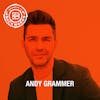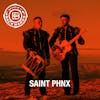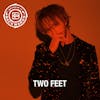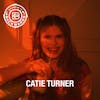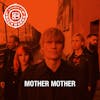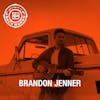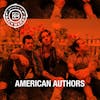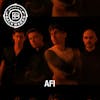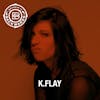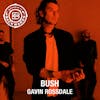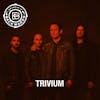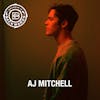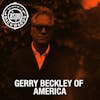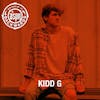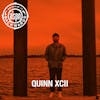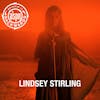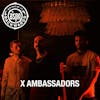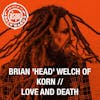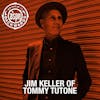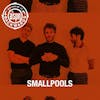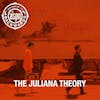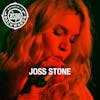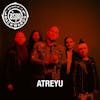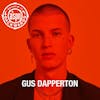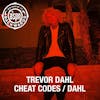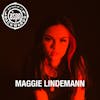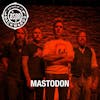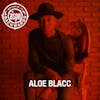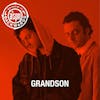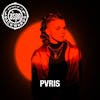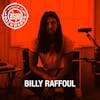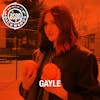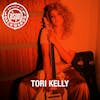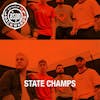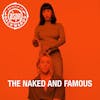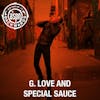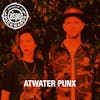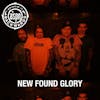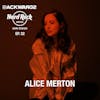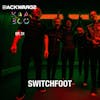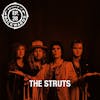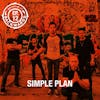Interview with Kayla Thompson
We had the pleasure of interviewing Kayla Thompson over Zoom video!
Singer songwriter Kayla Thompson delivers an ethereal performance on her latest single, “The Remains,” out now. This single is her first release since gracing fans with “Younger,”...
We had the pleasure of interviewing Kayla Thompson over Zoom video!
Singer songwriter Kayla Thompson delivers an ethereal performance on her latest single, “The Remains,” out now. This single is her first release since gracing fans with “Younger,” which recently landed Thompson a major playlist placement on Spotify’s Fresh Finds Pop playlist.
At its core, “The Remains” captures the inner conflict of making the right choice even when it is painful; this single reminisces on a summer romance that came to a heart-wrenching end with the shift of the seasons. Thompson effortlessly turns pain into beauty on this track with her honeyed, warm-toned vocals that shine brightly atop intricate instrumentation. Her voice entrances listeners with delicate finesse and a somber delivery that serves as a taste of what’s to come as she embraces her authentic alt-pop sound, and delivers music that is unapologetically her. Listeners can expect to hear influence from artists like Phoebe Bridgers, Clairo and Tori Kelly on “The Remains.”
More about Kayla:
Twenty-six-year old Kayla Thompson was born and raised in Boston, Massachusetts and later moved to North Carolina where she currently lives with her family. Being raised in generations of singers, songwriters, and musicians, music was always a fundamental building block of her life. In 2015, she recognized her inherited gift of songwriting and shortly after decided to defer from college to pursue music full-time. She began putting out covers on her YouTube channel and Instagram page where she gained more traction.
In 2017, she released her first original song, ‘Hold on to My Hand’, and in 2019, she became the most vulnerable she's ever been in her music, releasing ‘Deep Breath’—a piece sharing her personal struggle and triumph over anxiety. With each release since her sound has evolved along with her growing fanbase. This remains true for her latest single ‘Younger’ which gained more streams than any other single in the first week alone, and has been placed on multiple Spotify editorial playlists. More important than anything, music has brought her immense artistic refinement and personal growth as she embraces the journey for what it is and not just the destination.
We want to hear from you! Please email Tera@BringinitBackwards.com.
www.BringinitBackwards.com
#podcast #interview #bringinbackpod #KaylaThompson #TheRemains #NewMusic #zoom
Listen & Subscribe to BiB
https://www.bringinitbackwards.com/follow/
Follow our podcast on Instagram and Twitter!
https://www.facebook.com/groups/bringinbackpod
We'd love to see you join our BiB Facebook Group.
Hello! It is Adam. Welcome back to bringing it backwards. A podcast where both legendary and rising artists tell their own personal stories of how they achieve stardom. On this episode, we had a chance to hang out with Kayla Thompson over zoom video. Kayla was born in Boston and moved to North Carolina when she was around six years old. She grew up in the church. So she grew up singing in the worship group, but didn't pick up an instrument until she was in middle school. She started playing guitar. She never performed in front of anyone until she was a senior in high school. She played guitar. Sang would learn a bunch of covers and senior year she decided I'm going to take a shot at this music thing. 3 (2m 6s): I'm going to do the talent show. I'm going to play for my whole school. And she ended up getting great feedback. When she graduated high school, she went to college, still kind of thinking about doing the music thing, but wasn't really fully invested yet until she saw Tori Kelly live. And that really changed it all for her. She wrote her first song at 19. Her uncle is a singer songwriter and has been a huge mentor and asset for her to submit songs to him and kind of get his feedback after sending him the first song that she had written and felt good about. And he's the one that really validated the fact that she should pursue music as a career. 3 (2m 47s): She talked about going to the studio to record her first song, a big milestone with the song deep breath. And then again with the song younger, which was put on a couple editorial playlists on Spotify, and she also talks to us all about her new song called the remains. You can watch our interview with Kayla on our Facebook page and YouTube channel at bringing it backwards. It would be rad if you subscribe to our channel like us on Facebook and follow us on Instagram, Twitter, and tic talk at bringing back pod. And if you're listening to this on Spotify, apple music, Google podcasts, it would be absolutely amazing if you follow us there as well and hook us up with a five-star review. 4 (3m 28s): We'd appreciate your support. If you follow and subscribe to our podcasts, wherever you listen to podcasts, 3 (3m 33s): We're bringing it backwards with Kayla Thompson. 5 (3m 37s): Hello. 3 (3m 37s): Hi, Kayla. How are you? 5 (3m 39s): I'm good. How are you? 3 (3m 40s): I am fantastic. I love your, your setup there. It looks great. 5 (3m 45s): Oh, thanks. I'm just in my parents' office actually. So it just kind of plopped myself here. Did everything 3 (3m 52s): Looks very studious in there for sure. 5 (3m 54s): Yeah. No, it's very studious. Yeah. They study in here and all the good stuff. So 3 (3m 59s): Yeah. Right on. Well, my name is Adam and this is about you and your journey and music. And we'll talk about the new record as well. 5 (4m 7s): Sweet. I'm so excited to be here. 3 (4m 9s): Very, very cool. So first off, talk to me about where you were born and raised. 5 (4m 15s): So I was born and raised in Boston, Massachusetts. Yeah. So I'm from up north originally, but I lived most of my life in the south, so I live in North Carolina now. 3 (4m 29s): Okay. So you're born, but you're born in Boston then moved to North Carolina. At what age did you move? 5 (4m 36s): I was still pretty young. I was like, I was around six or seven. Yeah. I fell into, so I mean, I was pretty much raised in the south, but I like to say that, you know, I got a little city in me. I got a little north in me, but yeah, 3 (4m 53s): Very cool. And how did you get into music, 5 (4m 59s): Man? I mean, I kind of grew up in a musical family. I would say musical slash like onstage kind of a family. So I was grew up on, yeah. I always grew up around like performers and my dad's a pastor and like, yeah, stop my uncle's a songwriter. And so, wow. Yeah. But I never really, I guess, took it upon myself to get into the industry until I was around 20. So pretty late, I guess you could say I'm 26 now. So a little bit been in it for a little couple of years, but I guess what, what made me do it was I wanted to conquer my fear because I was just really scared to sing in front of people. 5 (5m 44s): I felt like I was comparing myself to everyone and yeah, it was mainly just my stage fright. So when I was a senior in high school, I just was like, I'm gonna just do the talent show. So I did it and it, it went really well. I sang, I played guitar and conquered my fear and I was like, yo, that felt so good to do that. Kind of want to do that some more. And so, yeah, it just started kind of like, you know, testing it out. And then, and then when I was around 19, I started writing music and was sharing it with my family and saw how like, they were like, yo, this is really, really good. 5 (6m 24s): Like maybe you should take this seriously. And I was like, okay, maybe. And, and then when I saw, I saw Tori Kelly live in concert 3 (6m 34s): And 5 (6m 35s): Love her, like, she's amazing, but it wasn't just that she was like, obviously an incredible performer, like vocalist, songwriter, all the things. But it was the fact that I could physically see her like touching people through what she was doing. And I just was like, I've never seen people like, I guess be ministered to outside of church, which is what I grew up in. So 3 (6m 58s): Right. She has an incredible gospel record that she put out to 5 (7m 1s): Too. But before, but before it was like, it was just her EAP stuff. So it was like just her singer songwriter type of stuff. But she was like affecting people and I was so obsessed with that and I was like, I want to do that. So, 3 (7m 15s): Okay. I had a chance to interview Tori Kelly. She was so cool. So, so much fun. Yeah. She's rad. Well, I want to rewind a bit here. I'm interested because you said your dad's a pastor and growing up in the church, you'd never sang in the church, like a church choir or anything like that. 5 (7m 31s): So I did sing on like the worship team, but I never like, you know, Yeah. It wasn't Pushed me to, you know, as I would, but I didn't really like want to, and it wasn't a consistent thing. And I think the big difference was everyone kind of sings at church and it's just like, okay, yeah, you sing at church. So I would tell my school friends, like, I mean, yeah, sing at church, but in the south everybody does. Right. So it's like, whatever. But when I showed up at the talent show or whatever, and actually sang a solo, a solo thing and play guitar, people were like, oh, so you sing. 3 (8m 12s): Okay. 5 (8m 12s): Like it's not just 3 (8m 13s): Like with other people in the church choir. Yeah. 5 (8m 16s): So it was like, so yeah, but, but it was interesting kind of again, just differentiating church from like pursuing, being a singer songwriter. Like I wasn't, I don't write like Christian music. So I was like, I don't know, like my church family, my, my dad is going to be cool with that, but they're actually hella supportive. So 3 (8m 40s): Yeah. Another thing that stuck out to me is you said your, you had stage fright and that's why you didn't want to show people that you sing to people and then you decide to just do it in front of the whole school. Which to me is always like, it just it's, it's so interesting because if it was me, like the last place I'd want to go and like show my skills off for the first time would be in front of all the people that have to see on a daily basis going forward from that moment. I mean, maybe if you were at a coffee shop or you booked something like, you know, five towns down, you're like, if I screw this up, probably not going to run into these people ever again, but you decide to go like in front of your entire peer group, they tell me 5 (9m 21s): That's so true. I guess I didn't think about it like that, but I think it was like a thing of just like, if I'm gonna do it, I'm gonna like do it all the way. And I think, I think like coffee shop people, or like people, I didn't know, it like 10 or 15 people, I didn't know at all what still have been scary. But I think the biggest thing was like the big crowd and all the people I knew. And I think that was scarier to me. And I want to like completely break that or try to break that break that fear. But I also just wanted to, every year I was like, I want to do the talent show, but I'm scared. 5 (10m 6s): So it was kind of a thing. Whereas like I have this, my last year of high school, I have to do the talent show. So it was like, yeah, it was, yeah. I think that was kind of what I was about. 3 (10m 16s): But when did you start playing guitar? 5 (10m 19s): I started playing when I was in middle school. Yeah. I went to, I went to a private school and I went to like a Catholic school. And for some reason the instrument for music class was guitar. And that's cool. One. Yeah, it was pretty dope. I never realized how special that was to later. But yes, everyone, like 3 (10m 41s): I grew up Catholic, I would never assume that that would be the Choice instrument PR like an Oregon or something 5 (10m 52s): Or just like flat out, just focusing on singing, you know? Right, 3 (10m 55s): Right, right. 5 (10m 58s): No, it was, our teacher wanted to teach us guitar. And so everyone learned guitar, but my music teacher chose me and two other people as like the guitarists of like the school. And so I was like, oh, maybe I'm like really good at like good at this. Like I haven't yet for this. And so her kind of like, recognizing that in me is what made me be like, maybe I should get one. I really like it. And I'm like kinda, kinda got a thing for it. So why not? 3 (11m 32s): So was that the only instrument you played was that in the, was that the first is your main learned? 5 (11m 36s): The first instrument I learned was actually piano when I was like, okay. Yeah. But I didn't really stick with it. So I don't really know. 3 (11m 46s): And like your parents, like you should learn piano it for a bit. Yeah. 5 (11m 50s): That was kind of one of those things. Yeah. When you're like five means your kid wants to play an instrument, so. 3 (11m 56s): Okay. So guitar was actually the first one that you 5 (11m 59s): Guitar first one. 3 (12m 1s): Right? Right. Okay. And then when you do this talent show, well, first time you said you didn't start writing songs until you're 19. Is that what you said? 5 (12m 8s): Yeah. 3 (12m 9s): Okay. But prior to that, you were just learning covers and singing covers. Yeah. 5 (12m 13s): Yeah. Just doing covers and yeah. 3 (12m 16s): What did you do at the school? Talent show? What song? 5 (12m 21s): This is like nostalgic right now. He's like reminisce and I did, I did a medley cause I was really into like mashups in like 2013. That was like the thing. Right. 3 (12m 34s): They're 5 (12m 35s): Still really dope. So I did a mashup of thinking about you by Frank ocean and very human superhuman by Chris brown and Kelly. No. Who was it? Keri. Hilson. Yeah. 3 (12m 51s): Interesting. And you put that on guitar. I would love to hear what that sounds like on guitar. That's cool. 5 (12m 55s): There's actually, I think the videos on my YouTube channel, I think it's like, 3 (12m 59s): Oh man, 5 (13m 1s): God, 3 (13m 2s): You gotta dig deep into the, I think I kept 5 (13m 5s): It on there. Yeah. I mean, it's not, it's not bad, but it's like, it's my first time ever singing for real. So when I watch it, I'm like, 3 (13m 13s): But is it for the talent show? 5 (13m 15s): Yeah. It's from the actual 3 (13m 17s): You actually have Of your very, very first performance. So that's incredible. I wish I would've known about that. I don't have to go find it now. Oh, 5 (13m 26s): That's cool. 3 (13m 26s): That's 5 (13m 27s): Cool. 3 (13m 29s): That's awesome. Not a lot of people could say that, that they actually, you know how that 5 (13m 33s): I should go back and watch it. You're making me be like, you know what, let me like see where I came from. You know, 3 (13m 40s): That's, 5 (13m 41s): That's pretty cool. 3 (13m 42s): You said your uncle was a songwriter as well. 5 (13m 44s): Yeah. Yeah. He's 3 (13m 48s): A Mojave. Yeah, 5 (13m 49s): No, yeah. He's a, he's like a touring Christian gospel artist. Phil Thompson. Yeah. Wow. Yeah. So he he's been right. So, so okay. Him and three of my other aunts and uncles had a group back in the day, not back in the day, but it was like in the two thousands, 2000 tens called Ashmont hill. And so he wrote all the songs, they went on tour, opened up for like a big Christian artists named Nalley grant and yeah. And so then he broke off and did a solo career. So he's been like a big inspiration to me, but just like, he's my uncle so I can call him about anything. 5 (14m 34s): Talk to him about songs. And 3 (14m 36s): I was going to, yeah, I was going to ask you about that. Did, when you started writing songs or when you were pursuing music, was he somebody that you would call and ask questions to and okay. 5 (14m 45s): Yeah, I think he was, so me kind of writing songs whenever I tell the story, it's just like really random and odd, but I wasn't trying to write what happened was I think I was like, I think I was like on a trip or something and I was just like chilling in, like before I went to bed and I started humming something and I was like, what song is that? And something told me, like, you just came up with that. And I was like, oh, that's kind of dope. So then the next morning I was like, maybe I should try to like write a song. And I kinda was just like being stupid, but I like actually came up with like a really cool melody and something that I thought was actually pretty good. 5 (15m 28s): So I was like, I don't really know what's going on right now, but maybe I'll just show my uncle. And so when I showed my uncle Phil, he was like, okay, this is like really good. And I was like, really? He was like, yeah, like when did you start writing songs? I was like, So when he was like making a big deal about it and I liked it a lot, I liked, I liked the feeling of like creating something from nothing or like from inside me or whatever. And so yeah, him kind of like affirming that in me and being like, no, you should practice that. You should do that more. You should, you have it? 5 (16m 9s): Like, I think you have a gift for it. Like, let's see what else you can write. And so that really, 3 (16m 15s): I don't know, 5 (16m 17s): Validated yeah. Validated what I had and then it made me kind of take it. 3 (16m 23s): Yeah. And then from there where you shit, would you show your uncle your songs? Like here's another song, like, would he give you, you know, like feedback, 5 (16m 32s): Give me feedback. He would like say actually that's your hook, like switch that from the verse and put that there and I would do it and I'd be like, oh, shoot. 3 (16m 41s): Okay. 5 (16m 43s): This is actually pretty helpful. So yeah, it was, it was, it was really, really dope to have. 3 (16m 49s): Does he still help you now? Oh yeah. Okay. 5 (16m 52s): 1000%. We're like, we're very close. I call him about not just songwriting stuff, but like industry stuff. And cause he signed now with like, with a label. So he's just like, I don't know. He's just a great mentor and it's like, he's my flesh and blood. So it's someone that I know I can trust and Actually believes in me. And so it's been such a blessing for sure. 3 (17m 19s): That's so cool. So once you show him that song and you know, he kind of validates obviously what you were trying to do and what you're doing, how do you then start this, this career in music? What do you, what do you do next? So you just try to write a hundred more songs. You record a song, like where do you go from there? 5 (17m 37s): Yeah. So I mean, after that, you know, I talked to my parents about like this whole music thing and me feeling like, especially off the, it was like kind of everything like my uncle. And then shortly after that, like I went to college and everything, but that's when I saw Tori Kelly live and I had that whole epiphany thing. Like that's what I want to do. And so when I, you know, I hadn't talked with my parents, told them it was, it was something that I really loved, but it was also something I felt like I could do to like help people. And it was bigger than me. And so they were like, okay. And they saw the gifts. So they were like, all right, let's, let's pursue it. 5 (18m 17s): So I left school and I started going 3 (18m 21s): To school for music or no, 5 (18m 22s): No, I was actually going, no, you're good. I was actually going to school for psychology. Yeah. I thought maybe I'd be like a counselor, like a family therapist type of a situation. Sure. Yeah. I don't know. I thought I was interested in that a little bit, but yeah, I, I tabled that and I left school and I started kind of trying to do the social media following stuff and YouTube and Instagram mainly. And, and then my uncle was like, well, let's, let's record one of these songs that you, that you wrote. And he was like, I have a producer in Nashville. So I went to Nashville. 3 (19m 1s): Wow. Oh 5 (19m 3s): Really? Oh dope. I'm actually moving there in a couple months. 3 (19m 8s): Yeah, 5 (19m 8s): No, I'm excited. 3 (19m 10s): We just moved here a little over a year ago. My family and I moved here. I'm from San Diego. 5 (19m 15s): From California. 3 (19m 16s): Yeah. And then we moved here like a million other people apparently have done 5 (19m 22s): Because people have been moving from 3 (19m 23s): Yeah. There've been moving here. It's bizarre. Yeah. It's a middle Tennessee is like the spot people decided to come to, but it's 5 (19m 31s): Yeah, no, that's true. I was just in LA for like six months or so. Just kind of like doing some music there or whatever. And I realized most of the people were like, oh yeah, my friend used to live here, but now they moved to Nashville or so-and-so and they've moved here and I'm like, why is everybody moving in? Edit? 3 (19m 52s): Yeah, it is. That's cool. So you'll be here soon. So you went to Nashville to record your first songs. 5 (19m 58s): Yes. So I recorded my first single it's called hold onto my hand. And it was a great experience. It was my first time ever like really recording for real. And it was, it was hard. Like I was, I don't know. I was very, very self-conscious and I think growing up, I really wanted to be perfect all the time. Like being the pastor's kid and being the oldest in my family. And so music started to show me how, like, you can't be perfect. Like you're, you're gonna, you're gonna make mistakes. You're going to crack. 5 (20m 38s): Sometimes you're not gonna always be on pitch or you're going to come up with a lyric line that's kind of stupid. Or so it, it really like uproot to started uprooting a lot of things in me. But anyway, yeah. So I recorded that and it taught me a lot. And, and then I started learning like DSPs and I learned all of this kind of stuff on my own. I didn't really ask my uncle for help. Cause I was like, I know how to do it. Like I can figure it out. And 3 (21m 8s): Yeah, you're like, I'm young. I understand technology. 5 (21m 11s): And it was so funny. Cause I sound somebody up the other day, how my first experience uploading a song like onto, I think I use CD baby 3 (21m 21s): And 5 (21m 22s): Yeah. And, and I thought that like you could upload the song the night before it was supposed to come out. 3 (21m 31s): Oh, There's a grace period. Right. I mean, I haven't done that cause I, I, I'm not in the, in the business of uploading in releasing music, but so actually walk me through that. You can't just upload it. I would think you could upload it the day before. 5 (21m 46s): So you, so you can't so usually like usually, you know, now, now I know that, you know, you want to give time between like uploading your song till the release date, like about at least three weeks so that the music can reach like apple music, Spotify. And like, cause sometimes that takes like at least a week and a half just for them to get it. But then, you know, there's wiggle room or if you want to get playlisted if you want, like, 3 (22m 14s): Okay, so there's a whole, so there's a whole pool of people that are putting songs that editorial playlists can pull from before they even go like officially out. 5 (22m 24s): Yeah. So they can kinda like you can, oh yeah. So yeah. Well you can pitch your song. Yes. You can like upload your song and then once like upload it through whatever DSP and then once Spotify gets it because I'm registered as a Spotify artists or whatever. And I'm just using Spotify as an example because they're very, they're the most 3 (22m 46s): Biggest one right now 5 (22m 47s): With playlisting and giving these a shot. Yeah. So once they, once they get it, they'll notify you and that's when you can go in and use what's called the pitch tool. And so you can pitch your song to the editorial playlist by telling them information about the song, like, you know, all that kind of good stuff. So I didn't know about any of that stuff either. Yeah. 3 (23m 12s): I didn't either. That's incredible. Just cause from my world of putting a podcast up, I could literally go and push a button right now and 5 (23m 19s): Use the 3 (23m 20s): Company that I used to distribute. And then it'll be up in 10 minutes on apple and everything else, Spotify. 5 (23m 27s): So I don't really get why. No, it's true. And that's so true. I've heard that about podcasts. So I'm just kinda like, I don't get why it's such a, I think it's just because there's, maybe there's so much, so many songs coming out every day. 3 (23m 41s): Yeah. I forgot the number. It's like some obscene amount of songs that are being released on a daily basis, 5 (23m 48s): But I mean, it's pretty cool. Everyone has the freedom to, you know, put their stuff out, but it's, it's crazy. The amount of songs uploaded like once a day. 3 (23m 56s): Right. 5 (23m 58s): So learned a lot how to learn a lot. 3 (24m 1s): I just learned a lot. That's cool. Okay. So you, you were trying to navigate that. You realized that, okay. I can't just throw a song up day before in hopes that it's going to be everywhere. And then once you kind of figure out that method, like what's your first kind of big moment when it came to putting your music out or like a bigger, like a milestone 5 (24m 25s): When it came to putting my music out? I think the milestone happened lot, like very recently, so a lot later, but I think, I think for me, like I had these little moments of like 3 (24m 44s): Little victories, 5 (24m 45s): Like little victories or just little me, me kind of gaining more in my tool belt or gaining more confidence in myself. And I think my journey was so much, my music journey was very tied to like me growing up as, and finding myself as a person. And like I was kinda mentioning earlier, it really challenged me a lot and like broke down a lot of like the foundational things that I stood on. Like as a person, just like, you know, being, being perfect or trying to, you know, uphold this view of perspective that people had of me and having a lot of control. 5 (25m 28s): And so anyway, I think like there was that and I was growing a lot, but I think that from that came, this one song that I wrote called deep breath. And it was about me writing about like my fears and anxieties and things I was dealing with. And so when I put that out, that was like the first song that people weren't just like, okay, we'll put out a song. Good job. It was like, whoa. Like people from all over were messaging me. Cause at that point I had, I had kind of like gained a pretty good following on Instagram on my own. Like, 3 (26m 5s): Yeah, you have a great following on there. Impressive. Yeah. 5 (26m 9s): And so it wasn't just like my church family or like my friends. It was like people, I didn't know at all people who were like, oh, I heard this on Spotify and messaging me and sending me paragraphs about like how they were feeling depressed at the time. And they listened to this and they instantly felt better. And it was like a, oh shoot, this is what I, what I originally, this was my original why of like, why I wanted to do music when I saw Tori. Like, I feel like I'm affecting people. Oh shoot. So it really, it was such a cool, a cool year. I think that was 2019. And so not, not that long ago. 5 (26m 52s): And so yeah, after that, I, I, yeah, just obviously kept releasing music and, and then recently I put out a single called younger and that was the first song that ever like got recognized by like the Spotify editorial stuff. 3 (27m 7s): Oh, wow. Okay. 5 (27m 9s): Yeah. So 3 (27m 11s): Tobacco real quick to 2019 to deep press. So that starts doing well. And then obviously a pandemic happens and like, I mean, how quickly after that, and then are you like now, what do we do? Like, is this music thing still a good idea? 5 (27m 24s): No, for real. I think, I think the thing that, that shook me with the pandemic was I did, so I put out deep breath and then that was like going really going really well. And then I started doing like a lot more shows or trying to at least, and so I did a so far show in January and one of like the, the show runners for like the east and the west coast, one of the, I think it was the west coast, she was there and at the show randomly and she came up to me and she was like, oh my gosh, like freaking out, I'd love to like help you do a string of like so far show. 5 (28m 6s): So I was supposed to actually do kind of like a, like a tour with so far, a little bit. And we were like starting to kind of have meetings and talks about it, just like, you know, roughly, and then in March, yeah, the pandemics, I was just 3 (28m 26s): Like, 5 (28m 27s): Heck, cause I'd never done something like that before. That would have been such a great experience for me to have. But yeah. So, so there was that and I think the pandemic was, was pretty tough. 3 (28m 42s): Sure. Were you able to write quite a bit or 5 (28m 46s): I wasn't, I wasn't able to write. I was able to write, I think I just, at first it, it was cool. Cause I felt like very focused. Like I'm in the house I'm focused on writing or I'm focused on, okay, what's the next song I want to put out? Like how do I do that? Whatever. Cause I was doing like all of this, like trying to market stuff, trying to get producers, trying to whatever on my own. So yeah. So I was focused on that, but then after a while it's I think it just started, like, it kinda just started to te feeling deteriorating or something. Like, I feel like, I felt like I was kind of just stagnant. 5 (29m 31s): I felt like I wasn't doing anything. And then everyone is the thing that I kind of felt like maybe I had, which was like my S my Instagram, my social media platform. Now everybody's on social media all the time. And there's all these new people, 3 (29m 47s): Which is 5 (29m 49s): Yeah. Feeling like over-saturate in a way. It's like, okay, cool. Like other people are finding a way to connect with everyone else, but it felt like I felt like drowned out a little bit and I wasn't handling it well at all. And I really had to like, kind of revisit my identity as a person and not tying it to like my followers or how many views or likes I was getting, which, you know, people say a lot. So of course 3 (30m 23s): I wasn't the 5 (30m 24s): Only one 3 (30m 24s): It's in real time watching like pretty much how, yeah. I it's really hard not to pay attention to those numbers. 5 (30m 32s): It's true. Especially cause before it was working and then now you're like, okay, so what's wrong. Like The people just not care anymore. And, but I think it did teach me not to do it for that, which is, which is hard. Cause it's like, well you are doing it for people. You're doing it. You're trying to give 3 (30m 51s): People something and 5 (30m 53s): It feels good when people recognize it. And so people really weren't as much anymore. And, but that's when I kind of learned like, all right, whether it's 15,000 likes or views or whatever, or like three people sending me a message saying how, like they heard this song at lunch and it like made their day better. Like that's, those are both wins, you know? And I don't have to take one as a loss and the other as a, as a winner. I think so. So yeah, th the pandemic was, was kinda, it was kinda tough and I mean, we're kind of still in it aren't we, 3 (31m 39s): Of course. Yeah, no, say it hasn't gone away yet, but still, I mean, to, to have that momentum and then kind of, I was just curious how it affected you as far as that went and you said younger was the first one that got her an editorial playlist. When you put that song out, what was that like? 5 (31m 54s): I mean, that was pretty crazy because I didn't know until like two days after I put the song out on like a Friday or whatever, and then Sunday, I'm just like having lunch with my friend. And so a team, like a management team, I had worked with a couple of months prior. They reached out to me like, Hey, congrats. Like, oh my God blowing up my phone. And I'm just like, what did they say? Maybe they're just talking about the song or whatever. Like, oh, like they're like, God, like younger is doing incredible. I'm like, okay. They're like, have you, have you gotten on these playlist before? And I I'm thinking they're talking about like, cause I had, I had gotten added to a couple others, you know, indie playlist. 5 (32m 40s): They had tagged me on Instagram. I thought they were talking about that. And I was just like, oh, I don't know. They were like, oh my God, editorial playlists are huge. Like, this is a big deal. I was like, wait, what? Like, what are y'all talking about? I went onto like my Spotify page and I was like, oh, I'm on like five platelets. This is really wild. Like what's going on? And, and cause I didn't even with younger, I think I pitched it with the pitch tool I was telling you about, I think I pitched it like a couple of days before, whereas everyone tells you like, you know, pitch it like three weeks before, like right when Spotify gets it. 5 (33m 23s): And I kinda actually dropped the ball on that on my end. And so it was just clearly to me it was just like, okay, this is God, because I didn't do anything to get this. Like nothing at all. But just, I mean, obviously try to try to make a great song. But, but yeah. Also with younger too, that the concept was one that I didn't feel like a lot of people would really understand. So I kinda was just putting it out. Cause I just was like, it's one of my favorite songs I've written. I just wanna get it out there. And 3 (33m 58s): We'll tell me about the concept. 5 (33m 60s): Yeah. So younger is pretty much about me when I first started music. I was like, I was telling you, dealing with a lot of fears, pushing through a lot of anxieties and things like that. And I was just like, yo, when I was a kid I'd never, I don't, I don't feel like I ever dealt with that. I was so free. I was so like just, just willing to try anything, willing to fall on my face and just get back up. And I was like, I just want to like hone that same thing that I had. And so I wrote about that and, and, and so I think just maybe the, it was kinda like the hook of the song was tying it back to my personal relationship with God and how with him, it was easier for me to, to hone that again or to like be willing to fall or be willing to fail. 5 (34m 56s): But I didn't necessarily say that song. So it's a little poetic, slightly. So I was like, I don't know if people are going to fully get it, but maybe they will or whatever, but it ended up being another song where, I mean, the Spotify stuff happened, which was really cool. And like just the thumbs up that I'm in the right direction, I think. Right, right, right. I was also getting those messages, like how I did with deep breath. Like just people being like, oh my God, I know exactly how this feels like I'm in this position myself. And this is inspiring me to like, you know, to just take that again. 5 (35m 38s): So that was 3 (35m 40s): That's amazing. Yeah. Very cool. And the newest one that you've recently put out, it's called the remains. Talk to me about that song. 5 (35m 49s): Yeah. So there remains is it's, it's probably one of my favorite songs. I, I kind of wrote it, not really from an actual specific experience, but kind of like a collective experience that I feel like people have when they break up with someone or when a relationship ends where you're kind of in between this, you have this tension in between, like knowing that was the best thing for you to do, like was to end this relationship, but like missing that person or maybe not even missing the person, but just missing what it felt like to be in a relationship with somebody. 5 (36m 38s): And, and yeah. So me and my, me and my friend Solomon wrote it, he actually brought me the original idea and then I kind of took it and steered it into that direction. And I think what I like about it is that I tried a lot of things production-wise, I'd never done before. Like we're doing like stacked vocals, like doubles, like the entire song, which I always loved in like, you know, Phoebe Bridgers type of music, Clara, or artists like that. I love their kind of vibe. And so I was kinda trying that out and, and so, yeah, but then also mixing like just some other like pop elements and, and not just, it strictly being acoustic, which I did a lot in the past. 5 (37m 27s): So I try to kind of ma like blend these different sounds and I think it came out, came up. Great. 3 (37m 36s): Thank you. 5 (37m 37s): Thank you so much. Yeah. I try to like create like a vibe, but yeah. Maybe experience. 3 (37m 43s): Yeah. No, I love it. I love it. And are, do you have other songs in the, you know, in line in the queue, I guess, are you sure? 5 (37m 50s): Yeah, I do. I do actually. And that was the great thing about me going to LA and I worked with a team who helped me like connect and get all of these songs produced. And, and so I have like a, a good handful of songs to just like release back to back. And so we're going to do like a stripped version of the remains next. Yeah. Which I'm really excited about. I'm actually like uploading it today. I just got the master back. 3 (38m 23s): Yeah. So we'll see it up in like a three weeks or whatever. 5 (38m 28s): Okay. I'm going to put it up right now. So we're doing that. And I think we have, I think we're going to try to do maybe three, three more focusing on singles right now, just trying to build that momentum. But yeah. So I, I'm definitely leaning further into like, what I feel is a moral alternative space for me then just like the pop kind of singer songwriter stuff. Oh, zoom before. So I'm trying to try something, try something different. I like that kind of music. So I'm like, I don't know. I don't wanna, I just wanna see what people think, put it out and see what happens. 5 (39m 11s): So 3 (39m 12s): I love it. I love it. I can't wait to hear that the stripped version of the remains as well. And I appreciate your time today, Kayla, this has been awesome. 5 (39m 21s): I appreciate you having me on this is, this is so much fun. It was really easy to talk to you and thank you. Yeah. This is my first time doing like interviews about my oh, 3 (39m 32s): That's rad. Well, I'm glad that I do not a good time. I have one more question for you. Do you have any advice for aspiring artists? 5 (39m 44s): I would say man, I'm thinking of a couple different things, but I think, I think the main thing that I've learned is, you know, to give myself grace in this whole thing, and of course it's like a hustle and you have to mix like, you know, being this creative, but also, you know, putting yourself out there and, and being like ambitious. But at the same time, just have grace for your own journey. And like, there's a pace that everyone set at and you don't have to compare yourself to anyone else's pace or anyone else's journey, but your own. 5 (40m 31s): And so with that being said, just like have grace for yourself and just, just love it. Don't, you know, try to just be successful at it, but like love what you do and love what you create and it'll happen. However, it happens. It will 6 (41m 13s): Hurry into mattress firm for a limited time, save up to $500 when you get a king bed for the price of a queen or a queen for twin, plus get a free adjustable base with qualifying Sealy purchases up to a 4 99 value or get up to 60% off America's top rated brands like Sealy queen mattresses starting at 2 79 99, or Sleepy's at 1 69 99 in stock for best delivery. Only at mattress firm restrictions apply, see store or mattress, firm.com for details.
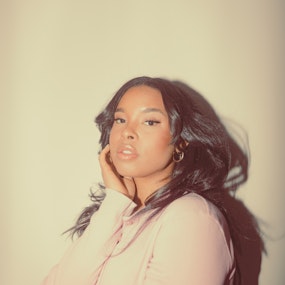
Kayla Thompson
Artist
Twenty-six-year old Kayla Thompson was born and raised in Boston, Massachusetts and later moved to North Carolina where she currently lives with her family. Being raised in generations of singers, songwriters, and musicians, music was always a fundamental building block of her life. In 2015, she recognized her inherited gift of songwriting and shortly after decided to defer from college to pursue music full-time. She began putting out covers on her YouTube channel and Instagram page where she gained more traction.
In 2017, she released her first original song, ‘Hold on to My Hand’, and in 2019, she became the most vulnerable she's ever been in her music, releasing ‘Deep Breath’—a piece sharing her personal struggle and triumph over anxiety. With each release since her sound has evolved along with her growing fanbase. This remains true for her latest single ‘Younger’ which gained more streams than any other single in the first week alone, and has been placed on multiple Spotify editorial playlists. More important than anything, music has brought her immense artistic refinement and personal growth as she embraces the journey for what it is and not just the destination.
Featured Episodes
Here are some great episodes to start with. Or, check out episodes by genre.























